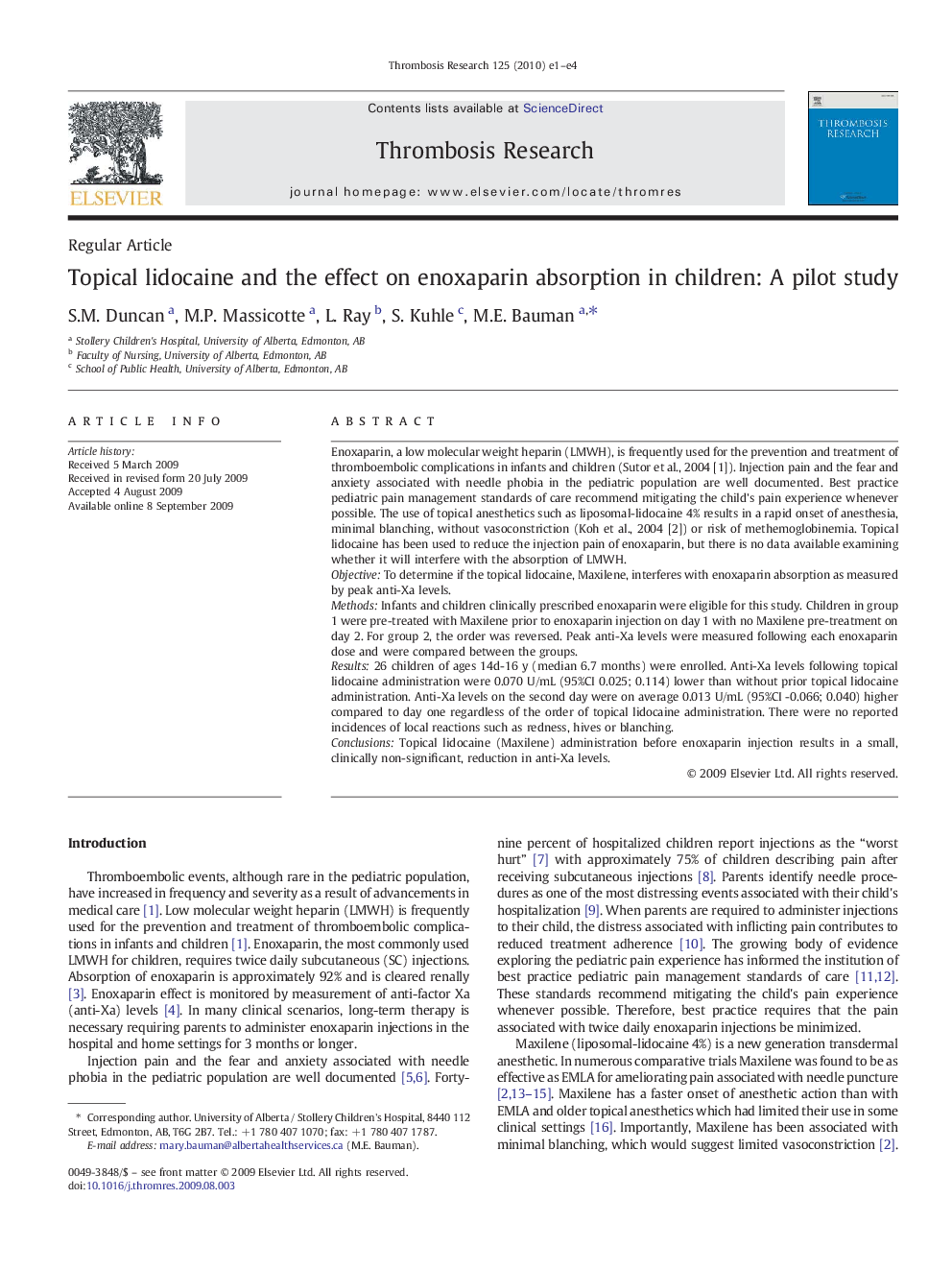| Article ID | Journal | Published Year | Pages | File Type |
|---|---|---|---|---|
| 3028112 | Thrombosis Research | 2010 | 4 Pages |
Enoxaparin, a low molecular weight heparin (LMWH), is frequently used for the prevention and treatment of thromboembolic complications in infants and children (Sutor et al., 2004 [1]). Injection pain and the fear and anxiety associated with needle phobia in the pediatric population are well documented. Best practice pediatric pain management standards of care recommend mitigating the child's pain experience whenever possible. The use of topical anesthetics such as liposomal-lidocaine 4% results in a rapid onset of anesthesia, minimal blanching, without vasoconstriction (Koh et al., 2004 [2]) or risk of methemoglobinemia. Topical lidocaine has been used to reduce the injection pain of enoxaparin, but there is no data available examining whether it will interfere with the absorption of LMWH.ObjectiveTo determine if the topical lidocaine, Maxilene, interferes with enoxaparin absorption as measured by peak anti-Xa levels.MethodsInfants and children clinically prescribed enoxaparin were eligible for this study. Children in group 1 were pre-treated with Maxilene prior to enoxaparin injection on day 1 with no Maxilene pre-treatment on day 2. For group 2, the order was reversed. Peak anti-Xa levels were measured following each enoxaparin dose and were compared between the groups.Results26 children of ages 14d-16 y (median 6.7 months) were enrolled. Anti-Xa levels following topical lidocaine administration were 0.070 U/mL (95%CI 0.025; 0.114) lower than without prior topical lidocaine administration. Anti-Xa levels on the second day were on average 0.013 U/mL (95%CI -0.066; 0.040) higher compared to day one regardless of the order of topical lidocaine administration. There were no reported incidences of local reactions such as redness, hives or blanching.ConclusionsTopical lidocaine (Maxilene) administration before enoxaparin injection results in a small, clinically non-significant, reduction in anti-Xa levels.
